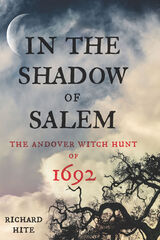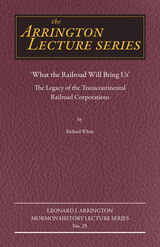
Young seventeen-year-old Joelito Filártiga was taken from his family home in Asunción, Paraguay, brutally tortured, and murdered by the Paraguayan police. Breaking Silence is the inside story of the quest for justice by his father—the true target of the police—Paraguayan artist and philanthropist Dr. Joel Filártiga. That cruel death, and the subsequent uncompromising struggle by Joelito's father and family, led to an unprecedented sea change in international law and human rights. The author, Richard Alan White, first became acquainted with the Filártiga family in the mid-1970s while doing research for his dissertation on Paraguayan independence. Answering a distressed letter from Joelito's father, he returned to Paraguay and journeyed with the Filártiga family on their long and difficult road to redress. White gives the reader a compelling first-hand, participant-observer perspective, taking us into the family with him, to give witness to not only their agony and sorrow, but their resolute strength as well—strength that led to a groundbreaking $10 million legal decision in Filártiga v. Peña. (Americo Norberto Peña-Irala was the Paraguayan police officer responsible for Joelito's abduction and murder, whom the Filártigas had arrested after finding him hiding in Brooklyn.)
That landmark decision, based on the almost obscure Alien Tort Claims Act of 1789, ruled that U.S. courts could accept jurisdiction in international cases—recognizing the right of foreign human rights victims to sue—even though the alleged violation occurred in another country by a non-American and against a non-American. So fundamentally has the Filártiga precedent changed the landscape of international human rights law, that it has served as the basis for nearly 100 progeny suits, and grown to encompass not only human rights abuses, but also violations of international environmental and labor rights law. Today, there are dozens of class action suits pending against corporate defendants ranging from oil conglomerates destroying the Amazon rainforest to designer clothing companies running sweatshops abroad.
Breaking Silence is a remarkable, consuming story, documenting not only the most celebrated case in the international human rights field—but also the tragic and touchingly human story behind it that gives it life. In 2001, Dr. Filártiga was nominated for the Nobel Peace Prize and the Alien Tort Claims Act continues to be hotly debated among politicians and lawmakers.

By July 1692, the witch hunt surrounding the town of Salem and Salem Village had been raging for four months. The Massachusetts Bay colony’s new governor, William Phips, had established a special court to try the suspected witches and the trials were well under way. No new arrests had taken place for nearly six weeks and residents had every reason to believe the crisis soon would be over. However, a middle-aged woman in nearby Andover lay gravely ill. Her husband suspected witchcraft as the cause and invited some of the afflicted girls from Salem Village to the town, thinking they could determine whether his suspicions were valid. Not surprisingly, they confirmed his supposition. The first person these girls accused in Andover—a frail and elderly widow bereaved by a series of family tragedies over the previous three years—not only confessed, but stated that there were more than three hundred witches in the region, five times more than the number of suspects already in jail. This touched off a new wave of accusations, confessions, and formal charges. Before the witchcraft crisis ended, forty-five residents of Andover found themselves jailed on suspicion of witchcraft—more than the combined total of suspects from Salem Village and the town of Salem. Of these, three were hanged and one died while awaiting execution.
Based on extensive primary source research, In the Shadow of Salem: The Andover Witch Hunt of 1692, by historian and archivist Richard Hite, tells for the first time the fascinating story of this long overlooked phase of the largest witch hunt in American history. Untangling a net of rivalries and ties between families and neighbors, the author explains the actions of the accusers, the reactions of the accused, and their ultimate fates. In the process, he shows how the Andover arrests prompted a large segment of the town’s population to openly oppose the entire witch hunt and how their actions played a crucial role in finally bringing the 1692 witchcraft crisis to a close.

How was frontier expansion rationalized in the Americas during the late nineteenth century? As new states fleshed out expanded national maps, how did they represent their advances? Were there any distinct pan-American patterns? The renowned anthropologist and human rights advocate David Maybury-Lewis saw the Latin American frontiers as relatively unknown physical spaces as well as unexplored academic “territory.” He invited eight specialists to explore public narratives of the expansion of Argentina, Brazil, Chile, and the western regions of Canada and the United States during the late nineteenth century, a time when those who then identified as “Americans” claimed territories in which indigenous peoples, who were now seen as economic and political obstacles, lived. The authors examine the narrative forms that stirred or rationalized expansion, and emphasize their impact on the native residents.
The authors illustrate the variety and the similarities of these nationalist ideas and experiences, which were generally expressed in symbolic and cultural terms rather than on simple materialist or essentialist grounds. The cases also point out that civic nationalism, often seem as inclusive and more benign than ethnic nationalism, can produce similarly destructive human and cultural ends. The essays thus suggest a view of nationalism as a theoretical concept, and of frontier expansion as a historical phenomenon.

nature of the individual. Richard White shows how Nietzsche was inspired
and guided by the question of personal "sovereignty" and how
through his writings he sought to provoke the very sovereignty he described.
White argues that Nietzsche is a philosopher our contemporary age must
therefore come to understand if we are ever to secure a genuinely meaningful
direction for the future. Profoundly relevant to our era, Nietzsche's
philosophy addresses a version of individuality that allows us to move
beyond the self-dispossession of mass society and the alternative of selfish
individualism--to fully understand how one becomes what one is.
A volume in the International Nietzsche Studies series, edited by
Richard Schacht

The Arrington Lecture series, established by one of the twentieth-century West's most distinguished historians, Leonard Arrington, has become a leading forum for prominent historians to address topics related to Mormon history. Utah State University hosts the Leonard J. Arrington Mormon History Lecture Series through the Merrill-Cazier Library Special Collections and Archives department.
READERS
Browse our collection.
PUBLISHERS
See BiblioVault's publisher services.
STUDENT SERVICES
Files for college accessibility offices.
UChicago Accessibility Resources
home | accessibility | search | about | contact us
BiblioVault ® 2001 - 2024
The University of Chicago Press









